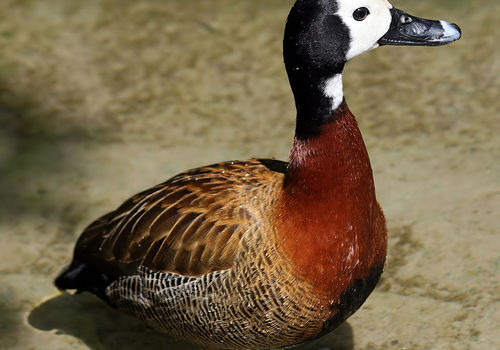
White faced duck
Dendrocygnia viduataWhite faced duck
Introduction: The vocal white-faced duck (Dendrocygnia viduata) feature in various inland waters of associated savannah and grassland where waters are extensive with short areas of vegetation. Their ability to breed whilst on a herbivorous diet is a feature that enables them to breed on wetlands. The African fish eagle is a main predator. They can be found roosting in groups on open shoreline or in rafts on open water but rarely in trees.
Distribution: Ovamboland and the Caprivi.
Diet: Feed under water and on land dominated by plant matter such as pondweeds and water-lilies. On land they strip seeds from plants.
Description: White-backed ducks have large heads and sit low in the water with a humped back. The wings are short and dark. Their legs and feet are bluish-grey.
Breeding: Clutches of between 4 and 9 eggs are laid with incubation periods of 29 to 33 days. Ducklings swim, dive and feed within 20 days of being hatched.
Size: 48cm.
Weight: 700g.


.png?width=82&height=85&name=Navigate%20Namibia-03%20(1).png)